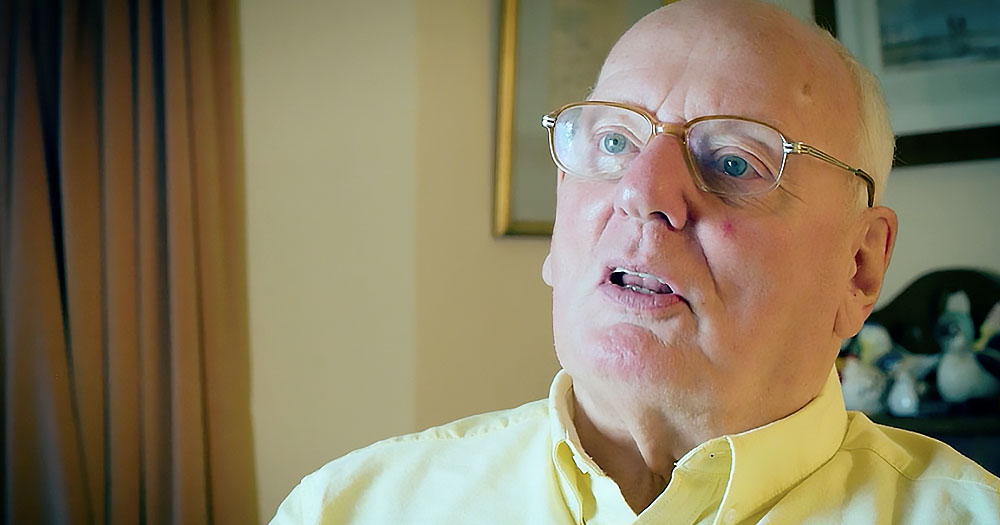In the late ’70s, the status of LGBTQ+ rights in Northern Ireland was dire. Although homosexuality amongst men of at least 21 years old had been made legal in England and Wales with the 1967 Sexual Offences Act, this law was not extended to Northern Ireland.
Facing up to two years imprisonment for acts of ‘gross indecency with another male’, punishment for homosexual relations was harsh and often enforced through the questioning and exposing of private sexual activities.
The legal fight for LGBTQ+ rights in Northern Ireland formally began with Jeffrey Dudgeon, a gay activist who suffered police raids and psychological abuse for his sexual orientation. The Royal Ulster Constabulary raided Dudgeon’s home, taking his personal diaries and writings.
When his belongings were eventually returned, they were damaged by red markings. Plagued by police threats and lengthy interrogations regarding his personal relationships, life was tenuous.
Dudgeon, in the documentary The Secret’s Out by Northern Visions, says, “In the closed-off part of Belfast, if you saw anybody moving after six o’clock at night, it was either a British army soldier, either in uniform or undercover, or it was a gay man.”
This hostile environment led Dudgeon to file a case against the United Kingdom in 1976 with the European Court of Human Rights. Dudgeon claimed that the criminalisation of his homosexual behaviour interfered with Article 8 of the European Convention on Human Rights in which “everyone has the right to respect for his private and family life, his home and his correspondence.”
On October 22nd 1981, Dudgeon’s complaint was upheld on the grounds that the criminalisation of homosexual acts between consenting men of at least 21 years did indeed violate Article 8.
The judgement stated the “restriction imposed on Mr, Dudgeon under Northern Ireland law, by reason of its breadth and absolute character, is, quite apart from the severity of the possible penalties provided for, disproportionate to the aims sought to be achieved.”
Historically, this Dudgeon V United Kingdom case became the first-ever approval in favour of LGBTQ+ rights at the European Court of Justice. All current member states and future joiners would subsequently be required to abide by this decision, setting a precedent for the rights of LGBTQ+ people in Europe.
The case led to partial decriminalisation of homosexuality in Northern Ireland in 1982 by the UK Parliament and served as a catalyst for the decision to fully decriminalise homosexuality in Europe.
More progress was made in legislative reforms of the court surrounding SOGI: Sexual Orientation and Gender Identity. These crucial successes propel future cases to be filed with the European Court of Human Rights in the name of advancing the rights of LGBTQ+ people.
There is still work to be done to improve the experience of LGBTQ+ in Northern Ireland and the world, but the 40th anniversary of this monumental decision and the progress it paved the way for is worth celebrating.
© 2021 GCN (Gay Community News). All rights reserved.
Support GCN
GCN is a free, vital resource for Ireland’s LGBTQ+ community since 1988.
GCN is a trading name of National LGBT Federation CLG, a registered charity - Charity Number: 20034580.
GCN relies on the generous support of the community and allies to sustain the crucial work that we do. Producing GCN is costly, and, in an industry which has been hugely impacted by rising costs, we need your support to help sustain and grow this vital resource.
Supporting GCN for as little as €1.99 per month will help us continue our work as Ireland’s free, independent LGBTQ+ media.
